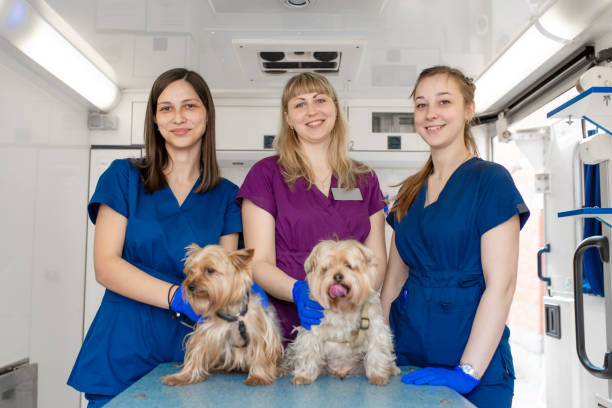Image Source: Google
Introduction
As a pet owner, encountering a medical emergency with your furry friend can be a scary and stressful experience, especially outside of regular veterinary clinic hours. Knowing how to navigate an after-hours emergency animal doctor clinic can make all the difference in ensuring your pet receives timely and appropriate care. Here are some important things pet owners should know when faced with a veterinary emergency outside of regular office hours.
What to Do in Case of an Emergency
- Stay Calm: It's important to remain calm in order to make rational decisions and provide comfort to your pet.
- Assess the Situation: Determine the severity of the emergency. Is your pet in pain, bleeding, having difficulty breathing, or showing signs of distress?
- Contact the Emergency Clinic: Look up the nearest after-hours emergency veterinary clinic and call ahead to let them know you are coming. This will help them prepare for your arrival.
- Follow Instructions: The staff at the emergency clinic will provide you with instructions on how to best care for your pet before you arrive.
What to Expect at the Emergency Veterinary Clinic
- Triage: When you arrive at the emergency clinic, your pet will be triaged to determine the urgency of their condition. Pets with life-threatening emergencies will be seen first.
- Medical History: Be prepared to provide the emergency clinic staff with your pet's medical history, current medications, and any recent changes in their health.
- Diagnostic Tests: Your pet may need to undergo diagnostic tests such as bloodwork, X-rays, or ultrasounds to help determine the underlying cause of their emergency.
- Treatment Plan: The emergency clinic will discuss a treatment plan with you and provide an estimate of the cost involved. Be prepared for potential hospitalization or surgery depending on the severity of the emergency.
Financial Considerations
- Emergency Fees: Emergency veterinary clinics often have higher fees than regular veterinary clinics due to the specialized care and staffing required outside of normal business hours.
- Payment Options: Discuss payment options with the emergency clinic upfront. Some clinics may offer payment plans or accept pet insurance to help alleviate the financial burden.
- Estimates: Ask for a detailed estimate of the expected costs before proceeding with any treatment. This will help you make an informed decision about your pet's care.
Follow-Up Care
- Discharge Instructions: Make sure to carefully follow any discharge instructions provided by the emergency clinic. This may include medication administration, follow-up appointments, or at-home care instructions.
- Communication: Keep in touch with your regular veterinarian to update them on your pet's condition and ensure continuity of care once the emergency has passed.
- Monitoring: Keep a close eye on your pet after their emergency to watch for any signs of relapse or complications. Contact the emergency clinic if you have any concerns.
Preparedness Tips
- Emergency Kit: Assemble a pet first aid kit with essential supplies such as bandages, gauze, antiseptic wipes, and a pet thermometer.
- Local Resources: Familiarize yourself with the location and contact information of the nearest emergency veterinary clinic in advance.
- Pet Insurance: Consider investing in pet insurance to help cover unexpected veterinary expenses, including emergency care.
Conclusion
Navigating an after-hours emergency veterinary clinic can be a daunting experience for pet owners, but being prepared and knowing what to expect can help ease some of the stress. By staying calm, following instructions, and being proactive in seeking care for your pet, you can ensure they receive the best possible outcome in the event of a veterinary emergency. Remember to communicate with the veterinary staff, stay informed about treatment options and costs, and provide your furry friend with the care and attention they need during their time of need.
